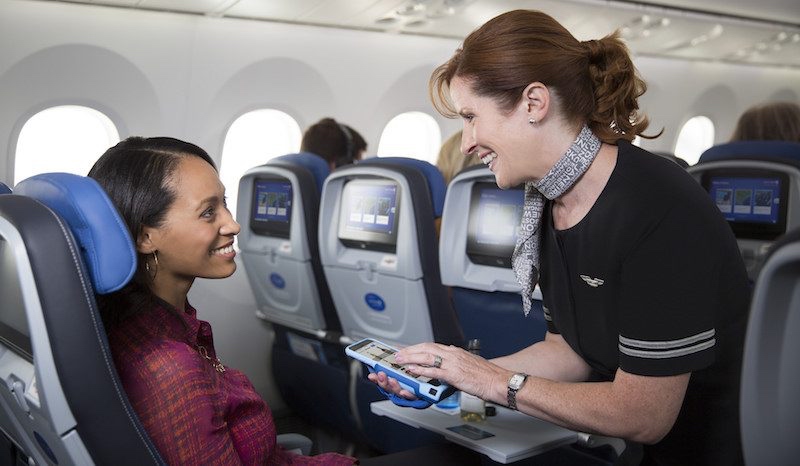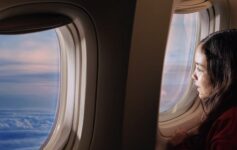Linda Jojo is the Chief Digital Officer for United Airlines as well as the Executive Vice President of Technology. In a recent wide-ranging interview with the Wall Street Journal, she explained why United will continue to overbook flights.
Overbooking occurs when more seats are sold than available. Nearly every flight on United is authorized to be overbooked, but very few ever require volunteers or involuntary denied boarding. Jojo explains why.
We know that people flying between two business locations on a Monday morning are probably going to show up. We know people who are flying to a resort location are probably going to show up. But there’s a certain percentage of people who don’t set their alarm right, or hit traffic and don’t make that early-morning flight. We also know the last flight of the day, everybody’s there to get back to their city. So what we’re doing is helping further refine the analytics to understand which flights have a higher probability of no-shows. That’s basically one or two [seats oversold]. If the people who bought those last two seats in that oversell situation are actually there and get on the plane because two other people changed their plans for whatever reason, we’re actually helping those customers.
It’s all about analytics and correctly forecasting who will show up and who will not. United’s premise is this: overselling almost always helps rather than hurts by allowing more people to reach their destination.
United: No “black-and-white rules” on overbooking
The WSJ follows up with a question on whether United will continue to overbook, a question that seems foolish in light of Jojo’s previous answer.
In April, we announced 10 new initiatives to improve the customer experience, including reducing overbooking, which has helped to dramatically reduce involuntary denied boardings by more than 80% from last year. Overbooking is an example of where today’s new techniques of machine learning and analytics can help us stay away from black-and-white rules and look at past behaviors, such as which flights have the most number of historical no-shows, and current events—is there something unique going on in a city—and situationally determine if a specific flight should allow overbooking or not.
(bolding mine)
United will stay away from “back-and-white” rules, meaning it will continue to overbook. Jojo claims that United’s technology investments and new customer service pledge will avoid any future Dao incidents. That’s a given, but if United is better able to predict the no-show rates, we should see paradoxically an increase in oversells with a reduction in involuntary denied boardings.
CONCLUSION
You can read the entire interview here — it’s worth a read. What also caught my attention is United’s use of mobile devices by FAs onboard to signal out passengers with special needs like tight connections. If your connection is tight, your seat will show up as red and FAs will be prompted to provide you connecting gate information and if applicable, help you get off the plane quickly.
The bottom line: technology is providing great potential in terms of overbooking and all areas of the customer experience.





Reason for overbooking: some passenger didn’t show.
But those passenger already paid the tickets. So you accept the money, but you expect some of those people didn’t use their right to be transported by your plane. And if somehow your estimation is wrong or there’s some VIP or your crew need to be transported, you waive your obligation to transport your customer. The customer which had paid in advance for your services. Any refund shall not included tax or fees. But those tax and fees are without any basis since the service never received by the customer. Furthermore, there’s time discrepancy from the payment made to the refund itself, whereby united held someone else money without merit. Surely a fine or interest is in order.
Therefore, united premise is just a sugarcoating bullshit. But looking at their profit, seems that american people loved the bullshit and keep using bullshit service provider.
Some passengers buy refundable tickets and make last-minute changes.
Some passengers use the ability to standby for earlier or later flights.
Some passengers use hidden city ticketing or “throw-away” ticketing and would never show anyway..
The flip side is the case when you really need to go to destination X but all tickets are sold out.
2 persons don’t show for the flight and it goes out with 2 seats empty, because we don’t allow overbooking.
Refundable/exchangeable: the price are higher. Difference of price is the calculated risk.
Standby: subject to availability. No issue.
Throw-away: since already paid, airline didn’t loose. You paid, its your right to use the service or not.
2 people don’t show, airline goes with 2 seat empty. But those are empty seat. Airline may sell the seat to standby passenger, but to oversold simply means ‘airline have no intention to fulfill its obligation 100% to passenger (transporting them)’ since airline have justified (through sugarcoating bullshit) that some passengers will not show
At least overbooking keeps fares lower. If they didn’t overbook, they would probably be charging higher airfares.
If you want low fare, get lcc.
While it may not completely wrong that overbooking lower fares, think again.
Cost of flight covered by the ticket sold. Some of those who didn’t show may refund the ticket or reschedule their paid service (flight). Its a calculated risk. Airline have extra expenditures on flight, in form of voucher for bumped passenger.
Not to mention to determine (average) ticket price airline must also determine load factor in high or low season/flight time.
Now, how much those abovementioned factor contributed to lower fares? Is it significant or you just buying a sweet sugar of bullshit with candycoating ?
Want low fares? Fly lcc.